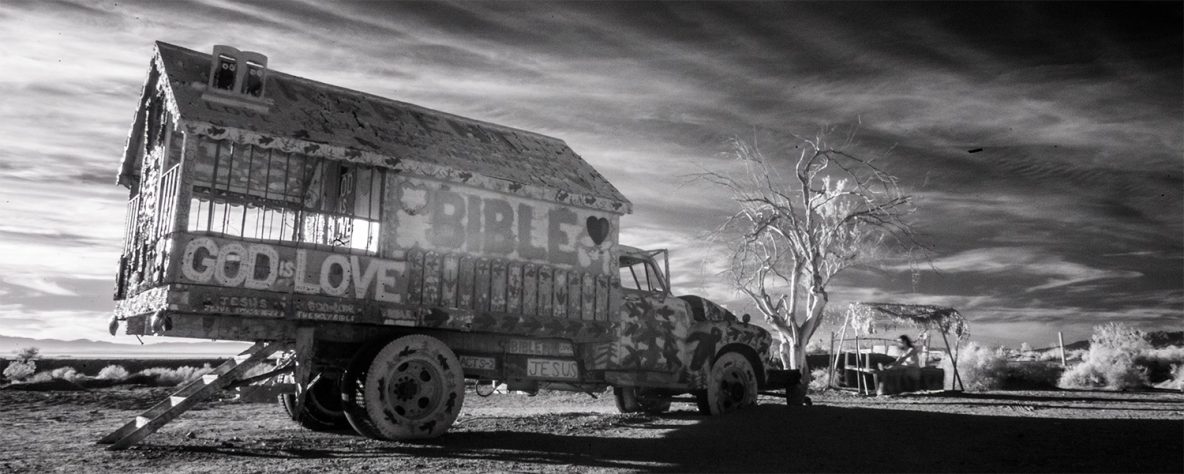Reflections on Religious Freedom
It was Marshall McLuhan in his book ‘Understanding the Media’, who coined the phrase, ‘the medium is the message.’ That is, how and where you say something often becomes the message people receive whether you intend it to be so or not.
As Proverbs tell us, ‘If a man loudly blesses his neighbour early in the morning, it will be taken us a curse.’ (Proverbs 27:14) So while religious freedom is of utmost importance, so too is the way we use it.
Preservation of freedom
At its heart, religious freedom is the freedom to think, speak and act on the basis of a philosophy. Including our Christian philosophy, to use the word. Or as we would say, our faith in the Truth of God contained in Scripture and embodied in Jesus of Nazareth. (There are boundaries, of course. Public safety. Law and order. Others…)
The preservation of that religious freedom ought to exercise us. In prayer and in polite, respectful conversation. We ought to be champions of such freedoms for ourselves and others.
But perhaps we ought not to include in our exercise of that freedom the right to annoy others to the point of anger.
‘My Sweet Lord’
Remember the Hari Krishna? The all singing, all dancing, groups of bedraggled young people who seemed to have perfected the way to turn Australians against them as we tried to go about our daily shopping centre business.
We crossed the road to escape them. Or studied our watches, or the ground, or tried to look as if we were on our way to a life-and-death appointment—just to avoid having them speak to us. Or chant in our faces. I recall many conversations and public statements in which Christian people wanted these groups off the streets.
Most if us have social anxieties, some of us have social phobias. The Hari Krishna devotees seemed not to have realised this. Nor to have understood Australian culture.
Then came George Harrison’s song, ‘My Sweet Lord’, a world-wide best seller, gentle and beguiling. Dedicated to Lord Krishna. It did a lot more for the Krishna movement than all of the shopping centre confrontations they manufactured. He found a better way. He circumvented our phobias.
Fighting the correct fight
Today’s irritants (for me) are the charity donation recruiters. They work on our innate inability to say ‘no’. If we say ‘no’ we are hard hearted and don’t care about anything from disadvantaged people to disappearing animals. Shame sneaks in. But if we stop and listen, how on earth do we get away without causing ourselves the embarrassment of finally saying ‘No I don’t care that hobbits are a vanishing species?’ How do we walk away and save face?
Frankly, I don’t want these things when I go shopping. I don’t want to be confronted. Leave me alone!
So what about our freedom to preach in public? To intrude our message? This is much more an issue in the UK, where they have a long history of street preachers, but it does become a case in point for us as we think about how to speak to a modern, overloaded generation. And what to actually fight for as we think about religious freedom.
Making himself the message
What presses me to these thoughts is a video clip I recently saw in which a street preacher was arrested in a Scottish town. He was in a public place with his voiced raised almost to shouting level as he preached. (He said he wasn’t shouting but he certainly intended to be heard.) There was a complaint. The police came. They gave him advice. Gently. But he argued his case. He refused the police advice. He was arrested.
I am not going to attempt to judge the motives of another. We can assess actions for what they accomplish whereas motives are an almost bottomless well. So let me speak of my impressions as an onlooker.
He gave the impression of wanting to be arrested. He seemed to want to push the issue. He sounded like someone wanting to become another test case. (Maybe hot on the heels of the viral video of the elderly black gentleman arrested not long before.)
Everything was in place: video cameras and people working them; he was miked up for audio recording; he seemed to have his answers prepared as he argued with the police. As he spoke to them, he read the police officers’ badge numbers onto the video. A mild threat?
In arguing his case, he sounded all too ‘smart’. Again, impressions. He pointed to buskers up the street who used microphones and were not stopped, so why should he be? Really! Being cute never assists the cause. If you were at a social event and a string quartet was playing Mozart at a reasonable volume, you may well be pleased. If they were replaced by an out-loud reading of Das Kapital or Mein Kampf at the same volume you might be less appreciative.
Not an inalienable right
Religious freedom ought not to be seen as our inalienable right to annoy people.
We don’t live in the days of Wesley. We don’t live in immediate post-war Australia or Britain. We need to find ways for the message of Christ to be heard; to come as close as we can to having the message dominate the method.
As I watched that preacher in the Scottish mall, it occurred to me that his unintended but actual message became, ‘These Christians are bloody annoying.’ Excuse the language, but that is exactly what the more polite members of the public would have been mumbling to each other. In McLuhan’s terms, he became the message.
How very, very sad for us all.
Had I been on that street in Scotland when that preacher was shouting his message across the mall, given the chance, I’d have voted for him to be shut down. I didn’t see it as religious freedom at all. Is that unchristian? I mean, he was shouting truth. But honestly, as I walk the streets and shopping malls I have enough of intrusive ads, bad music, people outside pharmacies spruiking their specials. Auditory and visual assault. Everyone trying to get into my head and my pocket.
Times have changed
Once, it was not so. There was a time when having someone spruiking in a public street was interesting. Even entertaining. Wesley drew enormous crowds. In post-war Australia, Open Air Campaigners also drew crowds. People came to listen, to enjoy the repartee with the hecklers, and even to listen to the message. They were effective. (I took part in some of those meetings. I felt quite ‘heroic’.)
But today we are in overload. We are emotionally and psychologically blasted at every turn. Walking pockets for others to stick their hands into. Social fear and vulnerability have dramatically increased. And there is only so much intrusion that any one of us can handle.
I agree with the core issues of that preacher’s message. But he wasn’t helping himself. The people. Or us.
A case worth fighting for
Quadrant magazine reported that when the Australian QC Augusto Zimmermann posted a Facebook notice about an upcoming conference to discuss the future of Christianity amidst the rising tide of anti-Christian sentiment ‘he had no reason to anticipate trouble: a civilised gathering, courteous speakers, ideas expounded and explored. What’s not to like?’
Well, Facebook decided no one should hear him. ‘Some unnamed elf in the social media giant’s cyber workshop decided that discussing Christianity’s future “violates community standards” and blocked anyone but Augusto from seeing it.’
Now that is an issue of religious freedom! No one had to go to Zimmerman’s seminar. No one had to listen. He was not in anyone’s face. As Quadrant stated, ‘Why a company should claim unto itself the “right” to inhibit and suppress free speech, let alone not be obliged to explain its reasons for doing so, is both a mystery and a travesty.’ Neither governments, corporations nor rent-a-crowd pressure groups ought to have that right.
Can you see the difference? We need to take very great care that we understand what we are fighting for. And not confuse religious freedom with anti-social belligerence. Belligerence is, in my opinion, unworthy of defence.
But legitimate use of freedom to discuss and present religious opinion in a courteous way is everyone’s right.
Ray Barnett






